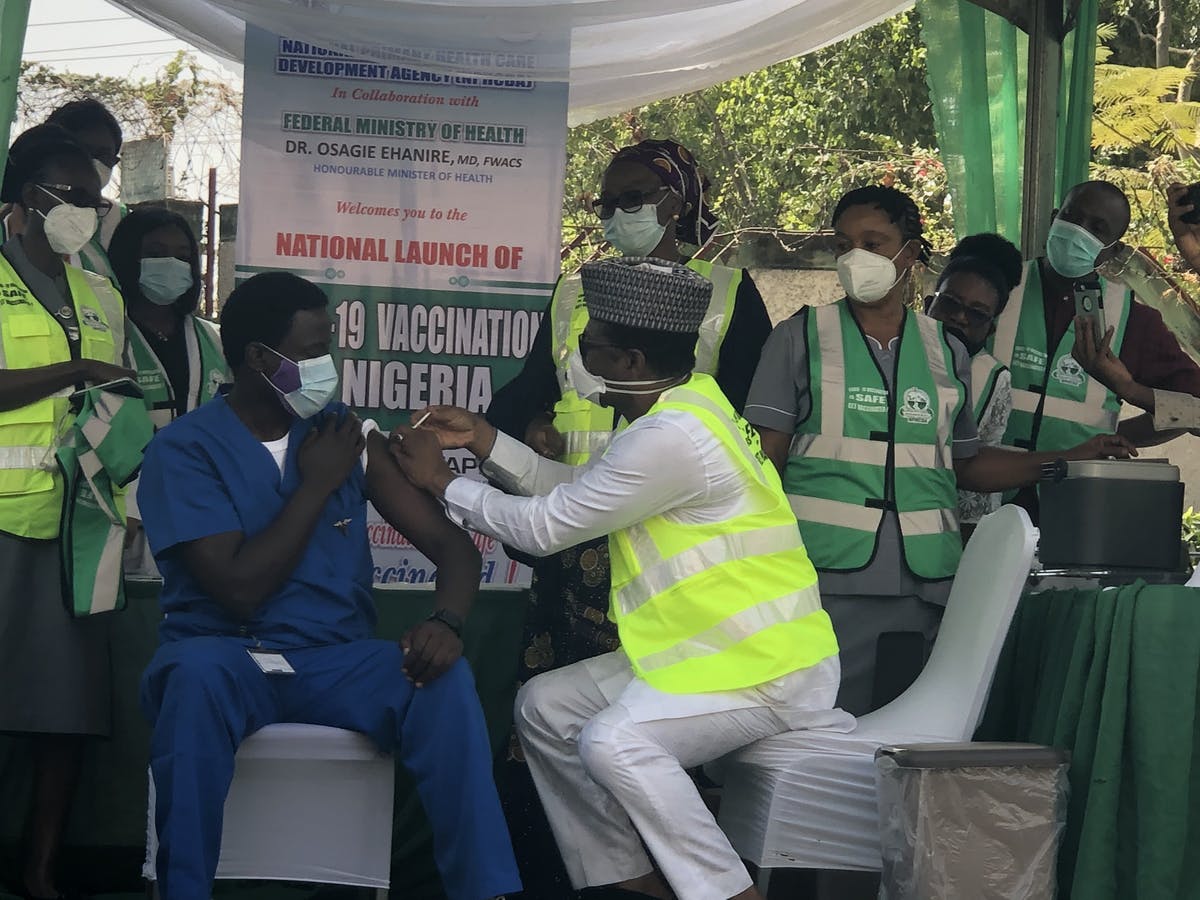There are no products in your shopping cart.
| 0 Items | £0.00 |


NIGERIA'S National Primary Healthcare Development Agency (NPHCDA) has set itself an ambitious target of vaccinating 40% of the country's 200m people before the end of 2021 and as many as 70% by the end of 2022.
Hard hit by having to rely in vaccine imports, Nigeria is one of those countries struggling to achieve widespread vaccination because there is no local production. On top of this, the government then has to deal with objections to vaccination on religious and superstitious grounds by large swathes of the population.
Despite all these problems, the NPHCDA has vaccinated 5,770,899 eligible persons with the first dose of the Covid-19 vaccination while 3,146,885 have taken the second dose. Abdullahi Garba, the NPHCDA director of planning research and statistics, said that these figures were achieved as of at November 7, 2021, in the 36 states and the Federal Capital Territory.
According to Mr Garba, there were over 8m doses of vaccines in the country at the moment, but Nigeria was still expecting more doses. He noted that to achieve herd immunity against the infection, Nigeria had set an ambitious goal of vaccinating 40% of its population before the end of 2021 and 70% by the end of next year.
Mr Garba said: “To achieve this, the vaccine roll-out was scheduled to be in four phases, starting with health workers, frontline workers and Covid-19 rapid response team, amongst others. The second phase has commenced and it is capturing older adults, aged 50 years and above and those aged between 18 and 49 years of age.”
Elsie Ilori, the director of the Nigeria Centre for Disease Control's (NCDC) disease surveillance department, added that while progress had been made with the fact-paced development of diagnostic, therapeutic and vaccines globally, variants of concern with increased transmissibility pose a threat. She added that the pandemic continues to play out differently across countries worldwide.
Notably, Africa had seen fewer severe cases and deaths but despite limitations of testing has experienced similar transmission of the Sars-CoV-2 virus in its population. According to Mrs Ilori regardless of the differing patterns of disease and deaths seen, the risk of the emergence of Sars-CoV-2 variants capable of evading human immune responses is a global concern.
Dr Osagie Ehanire, Nigeria's health minister, added: “It is strongly recommended you get vaccinated against Covid-19 to stop the spread of the virus. When you get vaccinated, you protect yourself, your family, friends and community against the disease.”